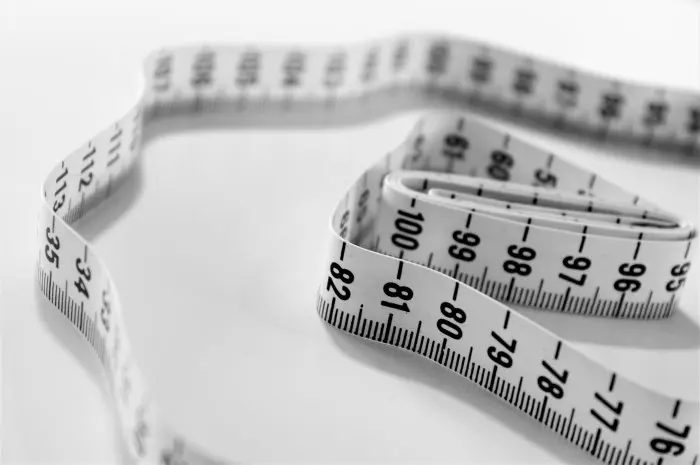Discover effective strategies for losing weight quickly and safely in our comprehensive guide.
Embarking on a weight loss journey can often be overwhelming, with a myriad of diets and fitness regimes flooding our choices. Yet, the key to effective and safe weight loss lies in understanding the underlying principles and adopting a sustainable approach.
This comprehensive guide is designed to demystify the process, offering practical tips and scientifically-backed methods to help you achieve your weight loss goals healthily and sustainably.
Understanding Weight Loss
The Science Behind Losing Weight
Weight loss essentially boils down to a simple scientific principle – calorie deficit. This means consuming fewer calories than your body expends. However, achieving this deficit requires a blend of dietary discipline and physical activity. It’s not just about eating less, but about eating right and increasing your metabolic rate through exercise.
Myths vs. Facts
The world of weight loss is riddled with myths. From miracle diets to overnight success stories, it’s crucial to separate fact from fiction. For instance, while cutting carbs or fats might offer quick results, the key to sustained weight loss is a balanced diet that includes all food groups. Similarly, exercise is not just for burning calories; it’s also essential for muscle building and overall health.
How to Lose Weight Fast
1. Setting Realistic Goals

Short-Term vs. Long-Term Goals
Setting realistic and achievable goals is the cornerstone of a successful weight loss plan. Short-term goals offer immediate motivation and a sense of accomplishment, like aiming to lose 1-2 pounds per week.
Long-term goals, on the other hand, keep you anchored to your ultimate objective, be it losing a specific amount of weight or achieving a particular fitness level.
Importance of a Balanced Approach
Balance is the key. Extreme diets or workout regimes might yield rapid results, but they are often unsustainable and can be harmful in the long run. A balanced approach to weight loss includes a mix of dietary changes, regular physical activity, and lifestyle modifications that can be maintained over time.
2. Dietary Changes for Weight Loss
Healthy Eating Habits
Adopting healthy eating habits is not about deprivation but about making smarter food choices. This includes incorporating more fruits, vegetables, lean proteins, and whole grains into your diet. It’s also about mindful eating – paying attention to what, when, and how much you eat.
Foods to Avoid
Certain foods can hinder your weight loss efforts. These typically include highly processed foods, sugary snacks, and beverages, as well as high-calorie but low-nutrient items. Reducing the intake of such foods is crucial for effective weight loss.
Portion Control
One of the most effective strategies for weight loss is controlling portion sizes. Eating smaller portions helps in reducing calorie intake without the feeling of deprivation. It’s not just about eating less but eating right.
3. Exercise for Weight Loss
Types of Exercises
A well-rounded exercise routine is a pillar of effective weight loss. It should include a combination of cardiovascular exercises (like jogging, swimming, or cycling), strength training (using weights or resistance bands), and flexibility workouts (such as yoga or Pilates).
Cardio exercises help burn calories and improve heart health, while strength training builds muscle, which boosts metabolism. Flexibility workouts enhance muscle recovery and prevent injuries.
Creating a Routine
Consistency is key when it comes to exercise. Aim for at least 150 minutes of moderate aerobic activity or 75 minutes of vigorous activity per week, along with strength training exercises twice a week.
It’s important to choose activities you enjoy, as this increases the likelihood of sticking to your routine. Remember, every bit of movement counts, so even incorporating small changes like taking the stairs or walking more can contribute significantly to your weight loss journey.
4. Lifestyle Adjustments
Importance of Sleep
Adequate sleep is an often overlooked aspect of weight loss. Poor sleep can disrupt hormonal balance, leading to increased appetite and cravings. Aim for 7-9 hours of quality sleep per night to support your weight loss efforts.
Stress Management
Chronic stress can sabotage weight loss by triggering emotional eating and slowing metabolism. Techniques such as mindfulness, meditation, deep breathing exercises, or even engaging in hobbies can help manage stress levels.
Hydration
Drinking enough water is essential for weight loss. It aids in digestion, helps control hunger, and boosts metabolism. Aim for at least 8 glasses of water a day and more if you’re engaging in physical activity.
5. Seeking Professional Advice

When to Consult a Dietitian or Doctor
If you have underlying health conditions or have struggled with weight loss in the past, it’s wise to seek professional advice. A dietitian can help tailor a diet plan to your specific needs, while a doctor can provide medical guidance and monitor any health concerns.
Personalized Weight Loss Plans
Every individual’s body is different, so what works for one person might not work for another. Professionals can provide personalized advice based on your health status, preferences, lifestyle, and goals.
6. Monitoring Progress
Keeping a Weight Loss Journal
Documenting your journey can be a powerful tool. Keeping a record of your food intake, exercise, and emotions helps to identify patterns and triggers in your weight loss journey. It also helps in staying accountable and motivated.
Adjusting Goals as Needed
It’s important to regularly assess and adjust your goals. If you’re not seeing the results you expected, don’t be afraid to tweak your diet or exercise plan. Weight loss is not linear, and it’s normal to experience plateaus and fluctuations.
7. Avoiding Common Pitfalls
Fad Diets and Quick Fixes
Many people fall into the trap of fad diets and quick fixes, lured by the promise of rapid weight loss. However, these methods are often unsustainable and can lead to yo-yo dieting. The key is to adopt a balanced diet and consistent exercise regime that you can maintain long-term.
Unrealistic Expectations
Setting unrealistic goals can lead to disappointment and demotivation. Understand that healthy weight loss is a gradual process, and it’s normal not to see immediate results. Celebrate small milestones and be patient with your progress.
8. Long-Term Weight Management
Strategies for Maintaining Weight Loss
Maintaining weight loss is often more challenging than losing it. To sustain your new weight, continue practicing the healthy eating and exercise habits you developed. Stay mindful of your food choices and maintain an active lifestyle.
The Role of Mindset
A positive mindset is crucial for long-term weight management. Embrace a lifestyle change rather than viewing your weight loss journey as a temporary phase. Focus on the health benefits and how you feel, rather than just the numbers on the scale.
9. Support Systems
Finding Community Support
A support system can greatly enhance your weight loss journey. Joining weight loss groups, online communities, or fitness classes can provide motivation, advice, and a sense of belonging. Sharing experiences and challenges with others who understand can be incredibly empowering.
Leveraging Family and Friends
Involve your family and friends in your journey. They can provide encouragement, help you stay accountable, and even join you in your healthy lifestyle changes.
10. Nutritional Supplements

When to Consider Supplements
Supplements can be beneficial in certain situations, such as if you have specific nutritional deficiencies or need extra support for your workouts. However, they should not replace a balanced diet.
Risks and Benefits
Before starting any supplements, it’s important to understand the potential risks and benefits. Consult with a healthcare professional to ensure that any supplements you consider are appropriate for your individual needs and won’t interact with any medications you’re taking.
Conclusion
Embarking on a weight loss journey is a commendable endeavor that requires dedication, patience, and a holistic approach. By understanding the science of weight loss, setting realistic goals, making dietary and lifestyle adjustments, seeking professional advice, and staying aware of common pitfalls, you can successfully lose weight in a healthy and sustainable manner.
Remember, the journey is as much about mental and emotional health as it is about physical health. Embrace the process, seek support, and stay committed to your long-term well-being.








